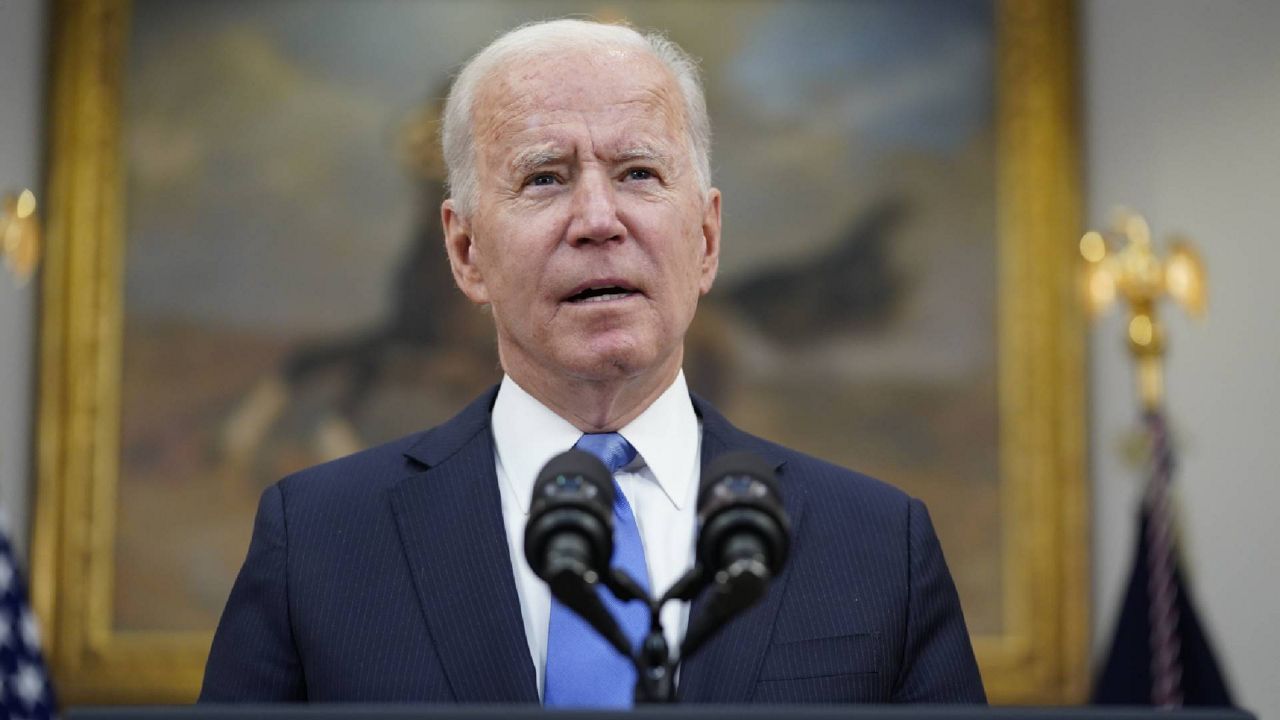President Joe Biden urged Americans to remain calm Thursday and predicted a return to normal in the next week for the fuel sector impacted by last week’s cyberattack, while also highlighting the need for “modernized” infrastructure in the wake of the incident.
The president highlighted the executive order he issued Wednesday night on cybersecurity, which in part encourages private companies like the Colonial Pipeline to review and augment their protections, though it doesn’t mandate new standards.
“I cannot dictate that the private companies do certain things relative to cybersecurity,” the president said Thursday. “But I think it's becoming clear to everyone that we have to do more than [is] being done now, and the federal government can be significant value added in having that happen.”
The president said he expects things to return to normal over the next week, and he asked Americans not to get more gas than they need in the meantime, despite shortages across the southeastern U.S.
As of Thursday afternoon, Colonial Pipeline had resumed its operations in the majority of the markets it supplies, the company announced on Twitter.
Colonial Pipeline ultimately paid hackers nearly $5 million to restore their computer network, according to a report from Bloomberg. The FBI has attributed the ransomware attack to a group called DarkSide, which has ties to Russia.
President Biden did not comment on the company’s payment, but he said he planned to discuss the issue when he meets with Russian President Vladimir Putin later this year.
The president held up the Colonial attack as an example of the urgent need to modernize the United States’ infrastructure, a core part of his proposed American Jobs Plan, which he was scheduled to discuss with Senate Republicans at the White House later Thursday.
“I’m willing to negotiate,” he said. “But it's clearer than ever that doing nothing is not an option.”
President Biden’s Wednesday executive order also seeks to improve information sharing between the federal government and private companies if they are hacked, improve federal cyber protections and establish a governmental review of U.S. cyber vulnerabilities, including through the establishment of a review board.
To boost fuel supply while the pipeline resumes operations, Homeland Security Secretary Alejandro Mayorkas approved a Jones Act Waiver late Wednesday night, which allowed ships approved by the Department of Transportation this week to transport gas to the East Coast. The Jones Act governs maritime commerce.
Mayorkas called the waiver “targeted,” since it was only issued to a single company.
“This waiver will help provide for the transport of oil products between the Gulf Coast and East Coast ports to ease oil supply constraints as a result of the interruptions in the operations of the Colonial Pipeline.”
On Thursday, Biden said federal agencies were focused on preventing price gouging as a result of gas shortages in the southeastern U.S.
“Nobody should be using this situation for financial gain,” he said. “That's what the hackers are trying to do.”
Earlier in the day, Transportation Secretary Pete Buttigieg told Spectrum News that hoarding gasoline could become a “self-fulfilling prophecy” and that Americans shouldn’t rush to the pumps unless it becomes necessary.
“If you need gas to go through your daily routine or do what you’re planning to do this weekend, you can fill up as normal. But there is no cause for hoarding or rushing,” he said.




